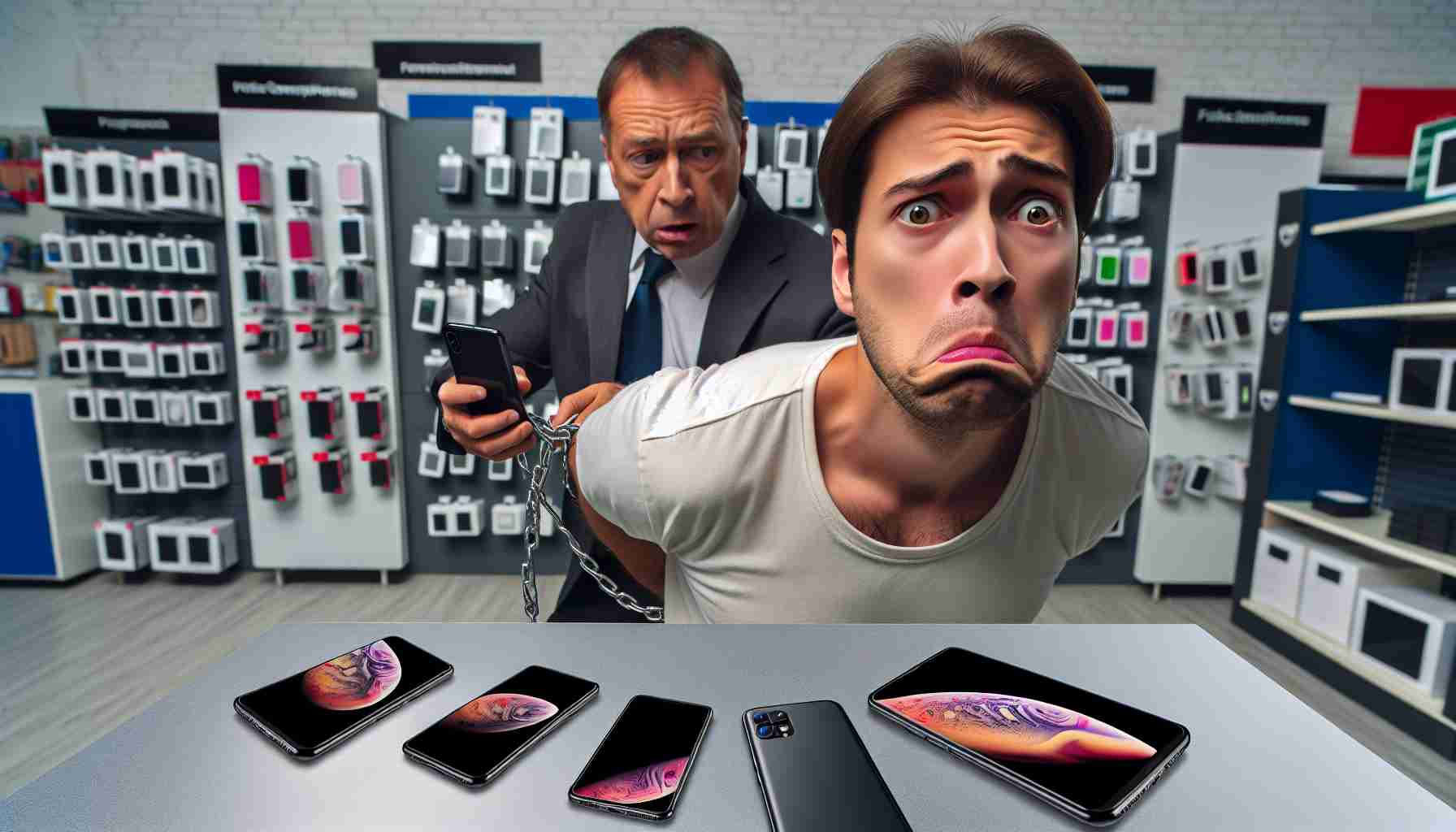A man in his thirties was apprehended by the Masan Customs authorities for importing counterfeit smartphones from China and deceitfully selling them as refurbished products from well-known international brands. This man, identified only as Mr. A, has been referred to the Masan branch office on charges of violating customs and trademark laws.
Mr. A allegedly sold over 1,400 counterfeit smartphones through an online marketplace, from June 2022 to October of the same year, profiting nearly 300 million won (approximately $250,000) through this scheme. The suspect marketed these phones as refurbished, which ordinarily refers to repaired and resold items such as display models or returns, generally available at a lower price compared to brand-new products.
The accused mixed deception with compelling pricing, offering the fake phones at prices 60% lower than the genuine articles, which range from 550,000 to 1.58 million won, effectively luring in unsuspecting buyers with his 220,000 to 700,000 won price tags.
Furthermore, Mr. A is accused of evading taxes worth around 200 million won by charging customers import taxes and customs duties on expensive goods like high-end Bluetooth speakers, while declaring them at values exempt from such charges for import purposes.
Investigators became suspicious when they noticed advisories on Mr. A’s shopping mall website, instructing customers to seek repairs from unofficial service providers. Upon investigation, numerous customers reported that official centers could not repair these smartphones due to non-genuine parts.
Masan Customs is set to recover the full amount of around 500 million won, including penalties, that Mr. A avoided paying. Officials warn the public to remain vigilant and avoid purchases when products are significantly cheaper than genuine ones or if there are instructions avoiding official repair services, as these are strong indicators of counterfeit goods.
Key Questions and Answers:
What were the main charges against Mr. A?
Mr. A was charged with violating customs and trademark laws by importing counterfeit smartphones and selling them as refurbished.
How much profit did Mr. A make from selling counterfeit smartphones?
Mr. A made nearly 300 million won (approximately $250,000) by selling over 1,400 counterfeit smartphones.
What did Mr. A do to deceive customers?
He offered the fake phones at significant discounts and instructed customers to seek repairs from unofficial service providers, which indicated the use of non-genuine parts.
What are the penalties Mr. A faces?
Masan Customs aims to recover the full amount of around 500 million won, which includes avoided taxes, customs duties, and penalties.
Challenges and Controversies:
The issue of counterfeit products poses significant challenges to consumers and legitimate businesses alike. Customers are deceived, and brands’ reputations are damaged when counterfeit goods circulate in the market. Authorities must balance aggressive enforcement measures against counterfeiters, with maintaining smooth importation processes for legitimate goods.
Advantages and Disadvantages:
Advantages:
For consumers, refurbished smartphones offer a budget-friendly alternative to new devices. When sellers are reputable, such products can also be more environmentally friendly, reducing e-waste by repurposing returned or display models.
Disadvantages:
The primary disadvantage is the risk of purchasing counterfeit products, which are often of inferior quality and lack warranty and customer support. The sale of counterfeits undermines the legitimate market and can lead to legal trouble for both sellers and, potentially, buyers.
Related Links:
For issues related to consumer protection and warnings about counterfeit products, you might visit organizations and agencies that provide resources and guidelines for safe purchasing practices:
– U.S. Federal Trade Commission
– World Intellectual Property Review
– International Trade Administration
Please note that the provided links are for general information purposes, and do not directly relate to the specific case of Mr. A but deal with broader issues concerning consumer protection and intellectual property rights.
The source of the article is from the blog krama.net
